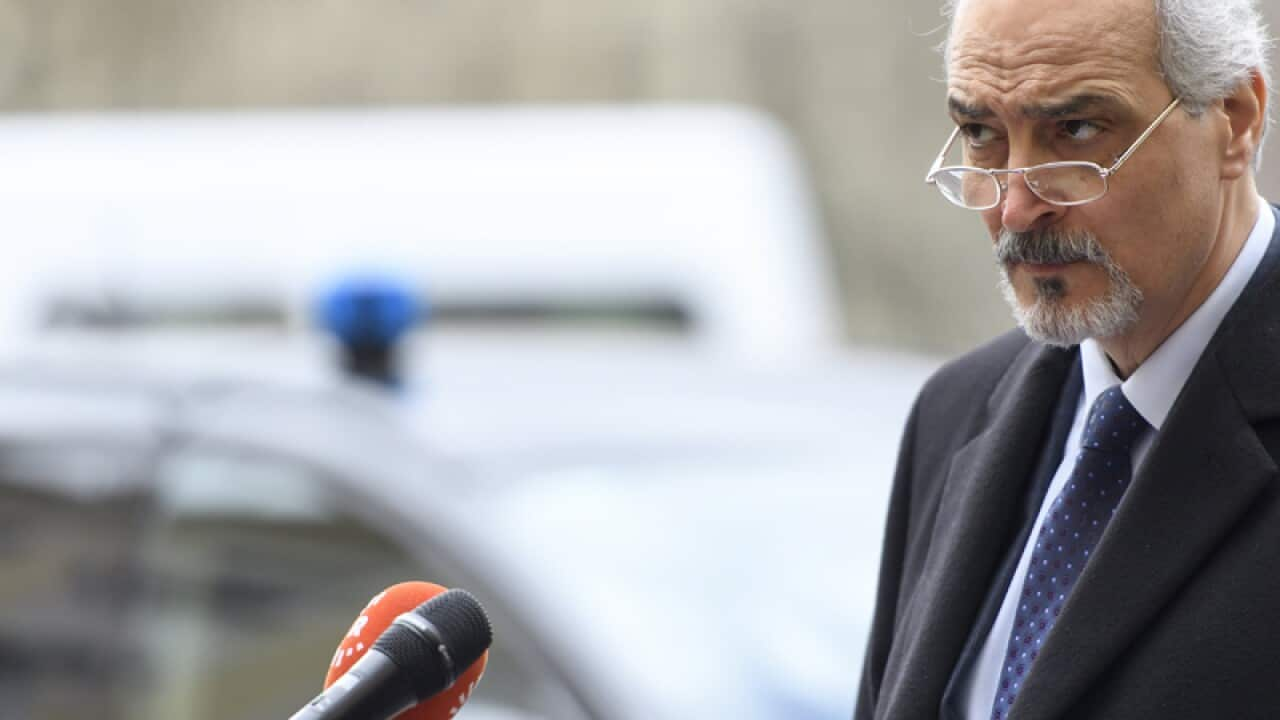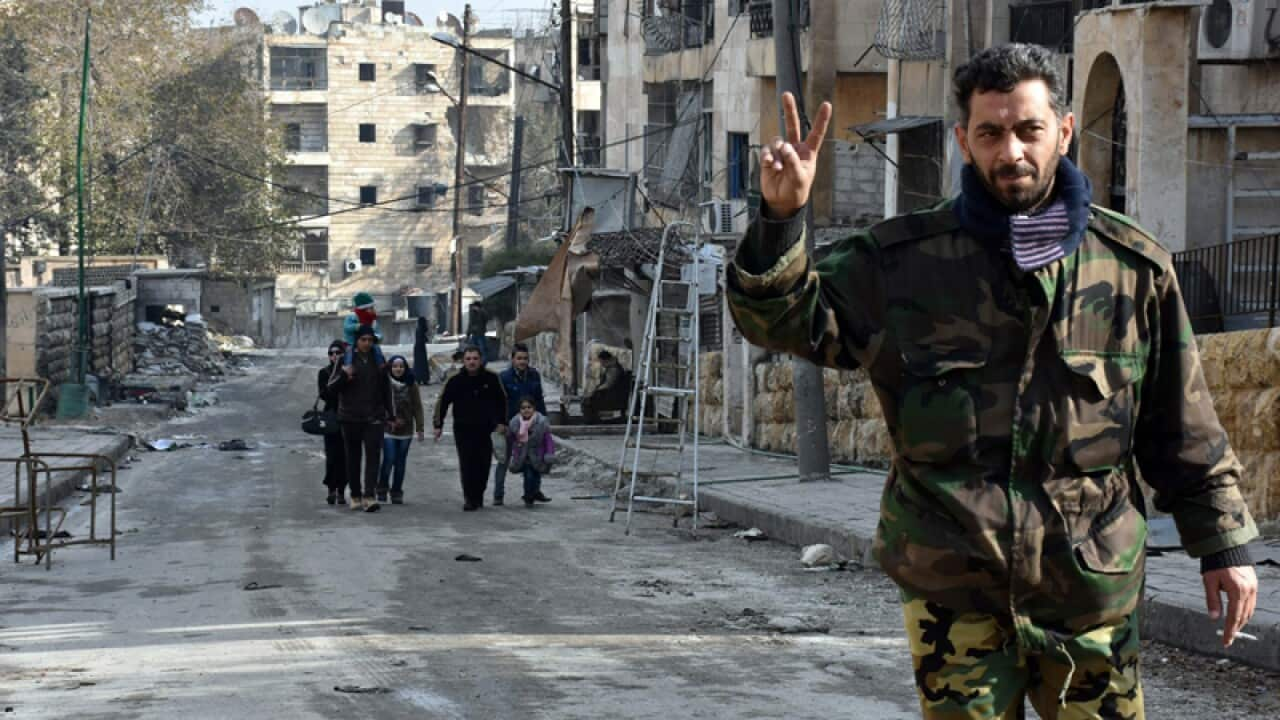The Security Council resolution drafted by Britain, France and the United States won nine votes in favor while three countries opposed it -- China, Russia and Bolivia. Kazakhstan, Ethiopia and Egypt abstained.
UN resolutions require nine positive votes and no veto to be adopted.
It was the seventh time that Russia, Syria's top military ally, has used its veto power to shield the Damascus regime.
Russian President Vladimir Putin had warned earlier that imposing sanctions on Syria was "completely inappropriate" while talks were ongoing in Geneva on ending the war.
US Ambassador Nikki Haley shot back: "This resolution is very appropriate."
"It is a sad day on the Security Council when members start making excuses for other member states killing their own people," she said.
"The world is definitely a more dangerous place," she told the council after the measure was rejected.
Related reading

Syria says Homs attacks will be punished
'Moment of truth'
The resolution would have put 11 Syrians, mainly military commanders, and 10 entities linked to chemical attacks in 2014 and 2015 on a UN sanctions blacklist.
It included a ban on the sale of helicopters and of chemical agents to the Syrian armed forces or the government.
A UN-led investigation concluded in October that the Syrian air force had dropped chlorine barrel-bombs from helicopters on three opposition-held villages in 2014 and 2015.
RELATED: White Helmets Oscar win 'a victory for Syrians'
French Ambassador Francois Delattre said the vote was a "moment of truth" for the council, arguing that chemical weapons use was a "negation of all civilization."
The joint panel of the United Nations and the Organization for the Prohibition of Chemical Weapons (OPCW) also found that Islamic State jihadists used mustard gas in an attack in 2015.
US joins Britain, France at UN
The vote marked the first major council action by the new US administration of President Donald Trump, who is seeking warmer ties with Russia.
France and Britain had circulated the proposed measure in December and the new US administration joined as a co-sponsor of the draft resolution this month.
Russian Deputy Ambassador Vladimir Safronkov echoed Putin's view that imposing sanctions would have undermined peace talks and described the draft resolution as a "provocation" by the Western "troika".
The Syrian government has repeatedly denied using chemical weapons in the war that has killed 310,000 people since March 2011.
Chinese Ambassador Liu Jieyi argued that sanctions were premature and that the UN-OPCW panel should be allowed to complete its investigations.
"At present, investigations are still ongoing and therefore it is too early to reach a final conclusion," Liu told the council.
China has joined Russia in vetoing six resolutions on Syria.
Britain, France and the United States are the other veto-wielding permanent members of the Security Council.
UN-brokered talks that opened on Thursday in Geneva ran into hurdles after Russia insisted that counter-terrorism be added to the agenda -- putting pressure on opposition groups with ties to Islamist fighters.
Putin -- whose military intervention in Syria helped turn the tables in favor of Assad -- lamented that the negotiations in Switzerland are "not going as smoothly as hoped."
Russia used its veto power twice to block demands for a ceasefire in Aleppo, the Syrian city that was seized by government forces in December.
Russia and China also blocked in 2014 a request for the International Criminal Court to open up investigations of war crimes committed during the war in Syria.










